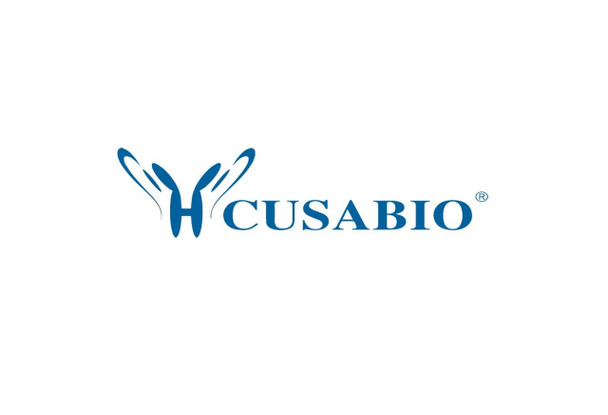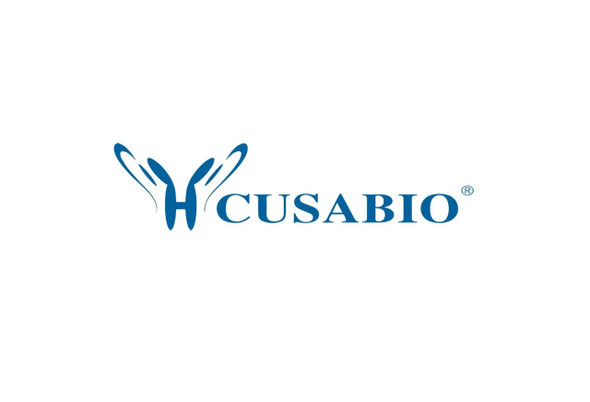Cusabio Human Recombinants
Recombinant Human NPC intracellular cholesterol transporter 1 (NPC1) , partial | CSB-YP015974HUf3
- SKU:
- CSB-YP015974HUf3
- Availability:
- 25 - 35 Working Days
Description
Recombinant Human NPC intracellular cholesterol transporter 1 (NPC1) , partial | CSB-YP015974HUf3 | Cusabio
Alternative Name(s): Niemann-Pick C1 protein
Gene Names: NPC1
Research Areas: Cardiovascular
Organism: Homo sapiens (Human)
AA Sequence: QSCVWYGECGIAYGDKRYNCEYSGPPKPLPKDGYDLVQELCPGFFFGNVSLCCDVRQLQTLKDNLQLPLQFLSRCPSCFYNLLNLFCELTCSPRQSQFLNVTATEDYVDPVTNQTKTNVKELQYYVGQSFANAMYNACRDVEAPSSNDKALGLLCGKDADACNATNWIEYMFNKDNGQAPFTITPVFSDFPVHGMEPMNNATKGCDESVDEVTAPCSCQDCSIVCGPKPQPPPPPAPWT
Source: Yeast
Tag Info: C-terminal 6xHis-Myc-tagged
Expression Region: 23-261aa
Sequence Info: Partial
MW: 30.2 kDa
Purity: Greater than 90% as determined by SDS-PAGE.
Relevance: Intracellular cholesterol transporter which acts in concert with NPC2 and plays an important role in the egress of cholesterol from the endosomal/lysosomal compartment (PubMed:9211849, PubMed:9927649, PubMed:10821832, PubMed:18772377, PubMed:27238017, PubMed:12554680). Unesterified cholesterol that has been released from LDLs in the lumen of the late endosomes/lysosomes is transferred by NPC2 to the cholesterol-binding pocket in the N-terminal domain of NPC1 (PubMed:9211849, PubMed:9927649, PubMed:18772377, PubMed:19563754, PubMed:27238017, PubMed:28784760). Cholesterol binds to NPC1 with the hydroxyl group buried in the binding pocket (PubMed:19563754). Binds oxysterol with higher affinity than cholesterol. May play a role in vesicular trafficking in glia, a process that may be crucial for maintaining the structural and functional integrity of nerve terminals (Probable). (Microbial infection) Acts as an endosomal entry receptor for ebolavirus.
Reference: "NPC1: complete genomic sequence, mutation analysis, and characterization of haplotypes." Bauer P., Knoblich R., Bauer C., Finckh U., Hufen A., Kropp J., Braun S., Kustermann-Kuhn B., Schmidt D., Harzer K., Rolfs A. Hum. Mutat. 19:30-38(2002)
Storage: The shelf life is related to many factors, storage state, buffer ingredients, storage temperature and the stability of the protein itself. Generally, the shelf life of liquid form is 6 months at -20?/-80?. The shelf life of lyophilized form is 12 months at -20?/-80?.
Notes: Repeated freezing and thawing is not recommended. Store working aliquots at 4? for up to one week.
Function:
Involvement in disease:
Subcellular Location:
Protein Families:
Tissue Specificity:
Paythway:
Form: Liquid or Lyophilized powder
Buffer: If the delivery form is liquid, the default storage buffer is Tris/PBS-based buffer, 5%-50% glycerol. If the delivery form is lyophilized powder, the buffer before lyophilization is Tris/PBS-based buffer, 6% Trehalose, pH 8.0.
Reconstitution: We recommend that this vial be briefly centrifuged prior to opening to bring the contents to the bottom. Please reconstitute protein in deionized sterile water to a concentration of 0.1-1.0 mg/mL.We recommend to add 5-50% of glycerol (final concentration) and aliquot for long-term storage at -20?/-80?. Our default final concentration of glycerol is 50%. Customers could use it as reference.
Uniprot ID: O15118
HGNC Database Link: N/A
UniGene Database Link: N/A
KEGG Database Link: N/A
STRING Database Link: N/A
OMIM Database Link: N/A









